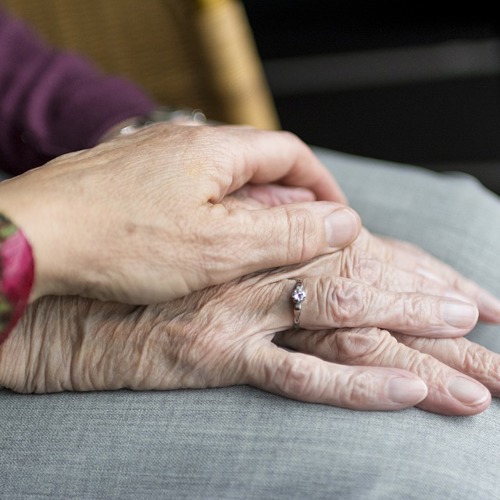Home support services Report on aging well at home | it’s time for the government to make its intentions known
January 24, 2024

Longueuil – The APTS (Alliance du personnel professionnel et technique de la santé et des services sociaux) has taken note of the publication of the fourth and last volume of Bien vieillir chez soi, a report on home support services presented on Tuesday by health and welfare commissioner Joanne Castonguay. As the health care reform plan (Plan santé) continues to unfold, the APTS is now asking health minister Christian Dubé and the minister responsible for seniors, Sonia Bélanger, to explain what they intend to do in terms of home support.
For the APTS, the commissioner’s report contains interesting proposals, but it also raises concerns regarding the continuum of care and services for seniors. The report also shows the necessity for the health and social services ministry (MSSS) to consult health and social services actors at a meeting on the “Seniors and vulnerable persons” section of the Plan santé – a meeting that needs to take place in the near future.
“We salute the recommendation to develop a strategy to attract and retain employees in the home care sector,” said APTS president Robert Comeau. “We’ve been saying this for a long time: the only way to develop our services over the long term is to make sure they stay public, emphasize the value of jobs in the public system, offer competitive conditions, and reduce the administrative burden for employees.”
The APTS also welcomes the report’s recommendations to set up regional home support offices, including one for Indigenous people, and to ensure that institutions are given the leeway they need to develop their ability to provide services adapted to local needs.
“For years, we’ve been insisting on the importance of making services more responsive to community needs,” said Joël Bélanger, APTS vice-president responsible for issues related to CHSLDs and home care. “We applaud the recommendations for services adapted to local realities. The mission of CLSCs has been repeatedly compromised – but this looks a lot like the original idea!”
The issue of privatization
There is, however, one red flag. One of the report’s suggestions to solve the health system’s difficulties in responding to the needs of an aging population is to open the door to the private sector for home care support and services.
“The user-pay model and opening up to the private sector – we’ve played in that movie before, and we know how it ends,” said Robert Comeau. “Spoiler alert: private companies are going to home in on a great business opportunity. Their profits will grow as they take money from our public funds, and recruit employees thanks to the expertise developed in our public system.”
The APTS is also worried that prevention will no longer be the primary goal of home support services.
“Professionals and technicians working in home support offer more than just basic care,” said Joël Bélanger. “Their services shouldn’t be seen only as a release valve designed to reduce the pressure on CHSLDs and hospitals. Home support is intended, above all, to serve one purpose, and that is prevention. We need to provide the resources that will allow us to take full advantage of the expertise of APTS members so that we can protect and improve our seniors’ quality of life.”
While some aspects of the report give rise to concern, this also demonstrates the need to hold a meeting on the “Seniors and vulnerable persons” section of the Plan santé. The meeting, originally supposed to take place in January 2023 as part of work focusing on the Plan santé, has been postponed several times. The tabling of the commissioner’s report is an opportunity for the APTS to request once again that the MSSS consult stakeholders in the health and social services system and explain how it sees the development of the continuum of care and services for seniors.
The APTS
The APTS (Alliance du personnel professionnel et technique de la santé et des services sociaux) represents more than 65,000 members who play a key role in ensuring that health and social services institutions run smoothly. Our members provide a wide range of services for all Quebecers, including diagnostic, rehabilitation, nutrition, psychosocial intervention, clinical support, and prevention services.

